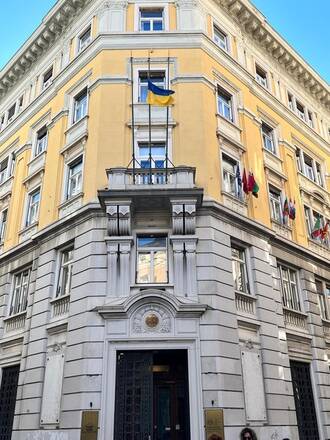Ukraine: Cei, new emergency, pandemic was testing ground
Apuzzo, Covid was useful for crises response development
04 October, 21:50"We have managed to respond to this emergency in a rather swift and flexible way, building solidarity. Cei responded to this crisis similarly to how it handled the Covid pandemic. It transferred part of its multi-lateral funds towards Ukraine, and it made targeted donations. For instance, we supported the creation of a field hospital", Apuzzo explained.
"The mission of Cei is to bridge Eu and non-Eu countries.
This mission is again put at the forefront, with Ukraine now considered for accession. The accession of the Western Balkans is now at the forefront too, which gives new vigour and cohesion to the organization", he added. Apuzzo talked to ANSA during an event which was co-organized by Who and Cei, a partnership born at the beginning of the pandemic.
"Making use of the political platform Cei represents, a formal endorsement to the Who Roadmap for Health and Wellbeing in the Balkans was made by the prime ministers of the Western Balkans at the 2021 Cei summit in Budva, in Montenegro. Ince was also chosen as an implementation platform for the Roadmap. One of the priorities of this Roadmap is primary health care, with a specific focus on mental health and digitalization. The objective of the meeting in Trieste was to create a network that could connect the Balkan states with European and Italian best practices. The various countries come out of it with future work agendas that are created in groups of countries. The Who then supports them in putting these agendas into practice", Apuzzo concluded. (ANSA).














